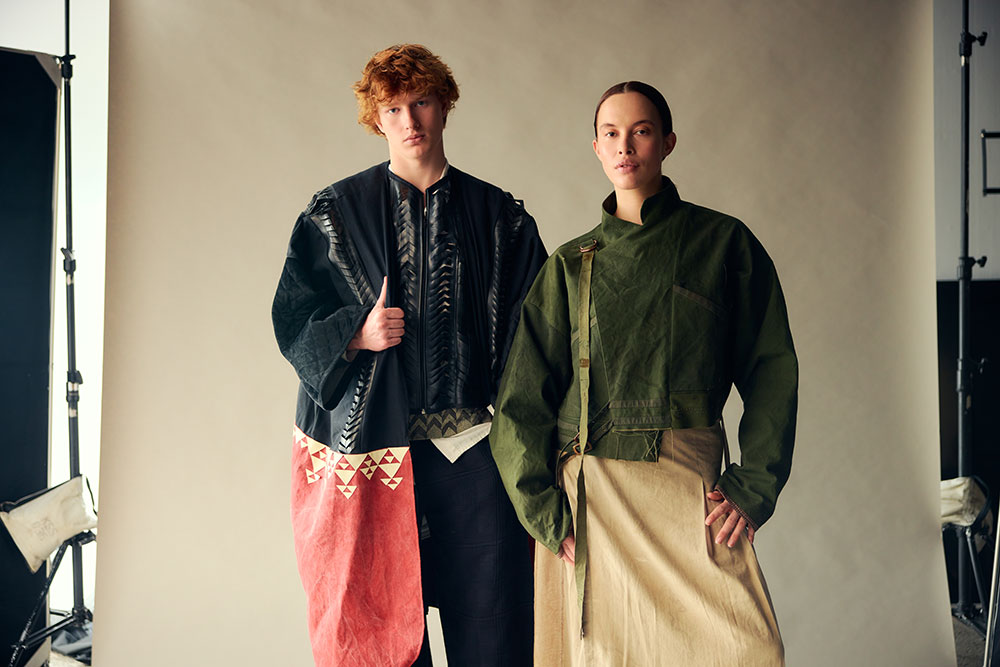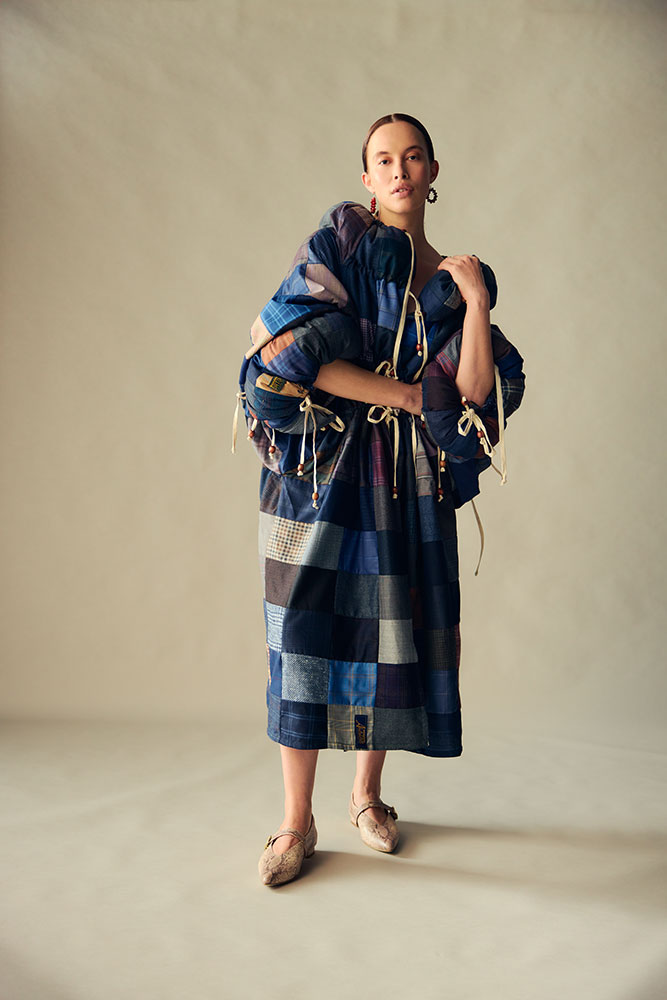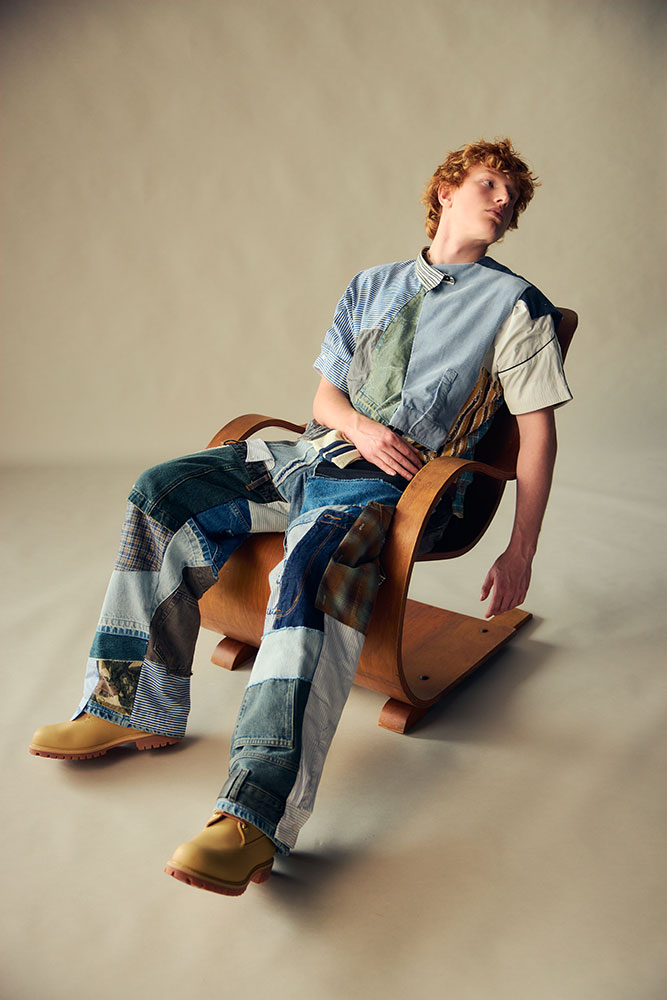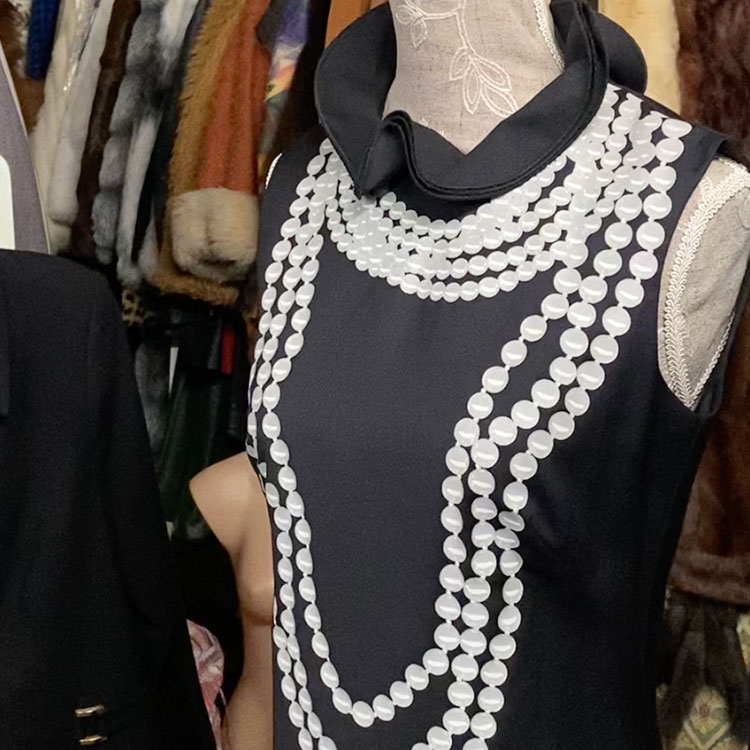
The finalists for this year’s Mindful Fashion New Zealand Circular Design Awards have been announced, with three businesses and 10 designers acknowledged for their mahi in offering circular solutions.
The awards, established by the industry organisation in 2023, put the spotlight on those championing circular fashion and textiles in business and design innovation – with two award categories focusing on brands creating new waste-free models, and creative approaches. Judges included fashion designers, industry leaders and business advocates – a panel with mana.
The 2025 finalists for the Business Innovation Award, sponsored by Untouched World, are Emroce, LOF and ReCreate.
“These businesses illustrate what’s possible when innovation meets purpose, creating new models that benefit people, nature and the economy,” said Jacinta FitzGerald, chief executive of MFNZ.
The finalists for the Design Innovation Award are Cheremene Castle, Galina Karmann, Louise Sly, Kensa Munroe, Josh Bognar, Mima Lewis Gourdie and Pip Stevenson.
The finalists for the Design Accessory Innovation Award Finalists, sponsored by Webb’s, are Carrie Andrews, Deonne Schollum & Maryna Lottering, and Xenia Sidorenko.
"Having judged these awards for the past three years, it's been incredible to see the progression - how designers are pushing their creativity while finding new ways to tackle textile waste," says Ensemble contributing editor Dan Ahwa, who judged the awards alongside other industry figures.
"The entries were really focused this year which made the judging process even more discerning, and I really enjoyed the serious and robust conversations we had as judges - challenging one another on why we chose our finalists."
The winner of the clothing innovation award wins a prize pack worth $7.5k; the winner of the accessory award wins a 6k prize pack. Other prizes include rising talent, cotton innovation and commercial potential. Winners will be announced at a gala event on October 7, at Webb’s Auction House.

While the awards are industry focused, they also aim to raise awareness around waste, and the importance of the circular economy for the industry and consumers. According to Mindful Fashion NZ’s Threads of Tomorrow report, released last year, NZ sends around 52,000 tonnes of clothing to landfill each year. That’s a staggering, and intimidating figure, but initiatives like these – and the designers and businesses being spotlighted through the awards – aim to offer hope and real life solutions.
The awards also help further cement the fashion industry as a sector for opportunity and growth. Their Threads of Tomorrow report said that in 2023, New Zealand’s fashion and textile sector contributed $7.8 billion to the economy (1.9% of GDP), paid $4.4 billion in wages and employed ~76,000 people (78% women).
That is language that speaks to the current government, especially in the current economic climate. The report was quoted by National’s Judith Collins when she opened NZ Fashion Week Kahuria last month, and in November the industry organisation will host a clothing and textile industry briefing at Parliament (hosted by Labour MP Camilla Belich).

The 2025 Circular Design Awards finalists, and entry notes:
Business Innovation Award, sponsored by Untouched World
This award honours businesses that have rewired their models around circular systems – keeping resources in circulation, paying fairer returns to growers, and proving waste is not inevitable.
A zero-waste fashion initiative that has eliminated textile waste from its studio for over eight years. Emroce’s inventive design system repurposes every scrap – even thread offcuts – resulting in no fabric waste leaving the studio and 367 square metres of material saved to date. This locally rooted business model demonstrates the commercial viability of circular fashion, scaling its impact through educational workshops, internships and partnerships that spread zero-waste techniques across the industry.
A circular wool design system turning undervalued strong wool into regenerative, high-performance products. Through a fully localised, zero-waste supply chain, LOF’s flagship Wool Hoop light (and its wool-based packaging) is produced without dyes, bleach or synthetics. Every component is designed for disassembly, reuse or home composting to “close the loop” from fibre back to soil. By fairly paying wool growers and revitalising local textile manufacturing, LOF proves that circular design can be desirable, scalable and commercially viable.
A values-driven circular brand combining ethical production with practical circularity and social empowerment. ReCreate designs timeless garments using natural fibres and avoids non-recyclable components, ensuring each product is made to last and be reborn. Based in New Zealand with a training workshop in Cambodia, the company provides fair employment and community support while implementing circular measures like refined cutting techniques and offcut repurposing. Through its “ReLove, RePair, ReCycle” programme, ReCreate invites customers to return used clothes for resale, repair or fibre-to-fibre recycling – extending garment life cycles and maximising social impact.
Design Innovation Award
The award recognises creativity at the raw edge of fashion - where waste is reimagined, and form is stitched from the overlooked. Split into Clothing and Accessory categories, this award honours designers who show that circularity is not constraint but possibility: garments and objects that are inventive, functional, and made to endure.
Clothing Innovation Award Finalists
Cheremene Castle (Reclaiming Waste)
A Māori designer from Waiheke who transforms community waste - rubber inner tubes, discarded tarpaulins, old shirts, and household linens - into one-of-a-kind avant-garde garments rich with cultural narrative. Her upcycled pieces reference traditional whakairo (carving) and the whenua (land), fusing Māori storytelling with design while diverting textiles from landfill.
Galina Karmann (Tropical Cocktails)
Reimagines unwearable clothing as a vibrant, feminine ensemble that celebrates fashion’s full circle. Galina’s dress is patchworked together from deconstructed shirts, trousers, and fabric offcuts, assembled into bold blocks of cotton and silk and bursting with tropical colour. She accents the look with playful accessories - a sun hat made from curtain waste, a macramé necklace knotted from canvas scraps, and a tote bag knitted from recycled cotton yarn – proving that rescued textiles can shine with new life.
Louise Sly (High Vis to Rainwear)
Turns damaged high-visibility work jackets into a stylish, functional raincoat with a reversible cotton sun hood, giving new life to industrial apparel. Her design also incorporates repurposed denim, a secondhand dress, and even pillowcase fabric quilted into pockets and trousers. By partnering with a textile recycler, Louise ensures a closed loop: salvaged trims are reused, cotton components biodegrade, and offcuts return for fibre recycling. The result is durable, fashion-forward outerwear born from workwear waste.
Kensa Munroe (Deconstructed Heritage)
Blends plant-based textiles, botanical dyes, and zero-waste techniques to create garments that honour heritage and place. Kensa upcycles materials like vintage household linens, an antique hemp mosquito net, and old canvas, transforming them into versatile, hand-finished pieces. Each garment is designed for disassembly -hardware is reclaimable, fabrics are compostable – offering a slow, artisanal alternative to the excesses of fast fashion.
Josh Bognar (Collaged Menswear)
Reimagines everyday menswear by collaging fast-fashion scraps into striking new forms. Sourcing elements like surplus sleeves, collars, pocket linings, and denim waistbands, he appliqués these offcuts onto oversized T-shirts and jeans to craft textured silhouettes. The resulting pieces retain echoes of their former lives and subvert the throwaway cycle, suggesting that even cast-off clothing can be reborn with style and substance.
Mima Lewis Gourdie (Circular Blueprint)
Merges educational waste and biomaterials into a polished, market-ready fashion statement. Mima’s coordinated look features a crisp upcycled shirt-and-trouser set paired with a cyanotype-printed calico coat - pieces that showcase textile innovation while remaining durable and compostable. She even crafts a matching handbag from SCOBY (kombucha) leather dyed with indigo, reinforced with rescued merino wool fibres and finished with reusable metal hardware. Every element is built for longevity and planned for biodegradation, proving that classroom offcuts and lab by-products can evolve into circular high fashion.
Pip Stevenson (Ewe Turn)
Reinvents the classic puffer jacket as a fully natural, compostable garment. Pip’s cozy black jacket is filled and formed with waste wool - discarded swatches and surplus fleece – stitched together with salvaged calico tape and even wooden beads from an old car-seat cover. Constructed with zero-waste techniques like patchworking and French seams, the piece is designed for longevity and easy repair (its wool stuffing can be topped up as needed). When its long life ends, every component can return to the earth, showing that even everyday outerwear can be both stylish and regenerative.
Accessory Innovation Award Finalists, sponsored by Webb’s
Carrie Andrews (Multiple Value Chain)
Closes the loop from farm to fashion by turning agricultural by-products into innovative accessories. On her family farm, fresh sheep skins that would normally be waste are vegetable-tanned using a chrome-free process, with all wastewater recycled to irrigate the land. Every scrap finds purpose: leftover leather is formed into aromatic air-dry clay and a gelatin-and-beeswax biocomposite. The resulting accessories are made to last yet fully biodegradable, embodying a regenerative supply chain that connects maker, land, and user.
Deonne Schollum & Maryna Lottering (Comfort on the Go)
Create a child’s backpack with a detachable plush bear entirely from discarded commercial laundry textiles. By salvaging damaged uniforms, towels, and sheets from their workplace, they produce a kid-friendly schoolbag that doubles as an anxiety comfort toy. Thoughtful design details – low-waste pattern cutting, reinforced stitching, repairable components, and offcuts used as stuffing – ensure the backpack is both durable and recyclable. It’s a product that cares for the planet as much as the children who carry it.
Xenia Sidorenko (Denim Fur Gloves)
Transforms unsellable jeans and hoodies into avant-garde gloves with a playful “denim fur” texture that’s bold but cruelty-free. Xenia’s dramatic blue gloves are made from a single material (cotton denim) for easy recycling and designed to be as functional as they are flamboyant. By intercepting garments headed for landfill and upcycling them into coveted accessories, she shows that textile waste can become desirable fashion. Now based in Wellington, Xenia is also building a network of local upcycling workshops to expand the reach of circular design.




